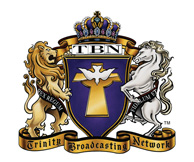(Today’s blog continues a new series on spiritual disciplines, or ways we communicate with God. The collection will include various writers who offer their thoughts on methods of spiritual development. This week’s focus is on Scripture Reading.)
Christians of my generation are often preoccupied with the authority of scripture, that is, by what it means to call the Bible the Word of God. The church has gone back and forth trying to decide whether it is simply a book of people talking about God or it somehow ‘contains’ God’s word or it in some sense ‘is’ God’s word. I grew up believing that the Bible is God’s word and trying to nail down just what that means. Terms like ‘inerrancy’ (the Bible contains no error or contradiction of any kind) or ‘infallibility’ (the Bible communicates perfectly what God wants communicated) were often defended and argued over. But these terms tend to focus more on the past, on God’s inspiring the people who wrote the Bible, so that reading the Bible can become a lot like reading principles, rules, and laws that were laid down a long time ago.
This can put the focus on the ancient past. “We know what God said 2000 or 3000 years ago and that tells us all that we need to know today.” This way of thinking about the Bible is a bit like thinking of it as a ‘Cosmic Course Syllabus’ that tries to anticipate every question or need that we may ever have before we have it, so that God need say nothing more because the answer is always, “It’s in the syllabus.” But surely God keeps talking and is very interested in you and me today. In fact the Bible talks about the ongoing role of God’s Spirit doing exactly that, speaking to us directly as we read what Jesus said. So the importance and the authority of the Bible doesn’t rest simply in how we understand ideas like ‘inerrancy’ or ‘infallibility’, but in our openness to God who desires to speak and reveal himself to us, often in and through his word.
Reading the Bible, then, is about more than seeking to understand ideas. Sure, we go to God’s word to hear the testimony of women and men of faith who have gone before us. But we also go there to meet with God, to hear his voice in a fresh, personal, direct time of intimacy and encounter with the Spirit. It’s possible to have a tremendous intellectual mastery of the content of the Bible without having a close and intimate relationship with God, so that seeking simply to understand what it says is not enough.
For the Bible to be God’s word in our lives we must look for and expect to meet the Holy Spirit who reveals what God would say to us from these words. We should pray as we read the Bible and, indeed, reading scripture should be like spending time with God, speaking and listening. As we meet with God in reading, mediating on, and praying through the Bible, then it becomes much more powerfully, directly, and yes authoritatively, God’s word for us. To read the Bible with a hunger for and an expectation of meeting God is to open the door to truly hear God’s word and to have our lives changed as we truly hear it.










Dr. Ellington has hit upon perhaps the most basic purpose of Scripture — to invite human kind to a relationship with the God of the universe. On a very base level, it’s tantamount to Queen Elizabeth calling me up personally to invite me to dinner — just the two of us — because she wants to get to know me. So, when we read His word, God is inviting me to enter into a personal, intimate relationship with Him for the mere purpose of friendship with Him. Can’t imagine why I would refuse it — “sorry, too busy today… my calendar next week is not as packed … I’ll get back to you.”
It’s refreshing to hear a theologian of today proclaim that the Bible is the Word of God for the people of God. Many theologians have lost their first love and have drifted from the Truth. Sad indeed.
Thank you, Dr. Oxley. Good thoughts.